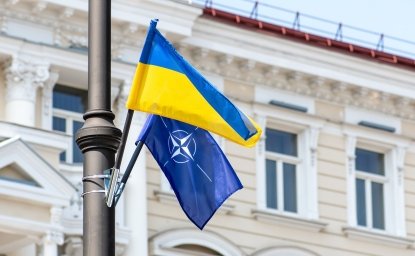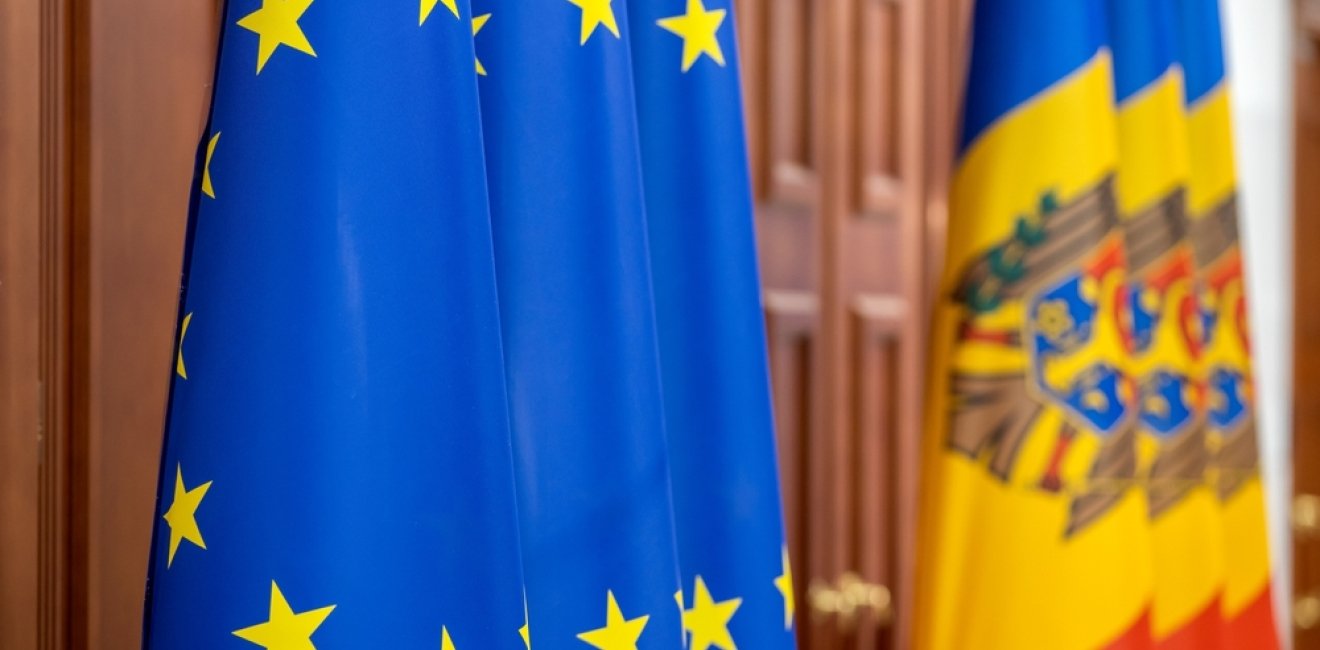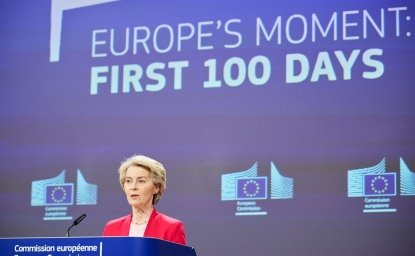In July last year, EU Commissioner Ursula von der Leyen offered Moldova the right to apply for EU membership. This decade long process raised spirits among the pro-Western government of President Maia Sandu. It provided a goal for a nation of 2.6 million squeezed between Ukraine and Romania with a swath of its nation in Transdniestria leaning towards Russia. In support of its declaration of accession, the EU gave €130 million in loans and grants plus €13 million to support the refugees from Ukraine. The hope was that the offer of accession and financial support would deter Russian supporters in Moldova from seeking to remove Sandu and her pro-western government.
Russian supporters not only find a home in Transdniestria but also in the autonomous region of Gagauzia where election for Governor Bashkun on April 30 resulted in two pro-Kremlin political parties, the Socialist and the Sor Party, holding a clear lead (a run off will be held on May 14). Despite the EU’s sustained efforts to support judicial and energy reforms, voters believe that EU agricultural products are overwhelming their local markets. They profess “endless love for the Kremlin” and dislike Sandu’s pro-western government. The election outcome demonstrated that a pro-Russian population of 120,000 responds to the Kremlin’s propaganda while continuing to enjoy EU funding.
In Moldova’s capital Chisinau, the Sor political party, founded by Ilan Shor and reportedly connected to Vlad Plahotniuk, the Moldovan oligarch who controlled the country until 2019, organized a demonstration in late February, mobilizing thousands of pro-Russians who demanded the removal of President Sandu and action to reduce the 50 percent inflation rate. Viorel Cernauteanu, the head of Moldova’s police, said in a press conference that the police had foiled a plot by Russia-backed actors to cause mass unrest during the protest and demonstrations continue throughout Moldova. Sandu finds friends in Romania, Ukraine and among EU members, but at home the challenge from pro-Russian misinformation campaigns is serious.
The EU has made strong statements of solidarity with Sandu’s government and condemned Russia’s involvement in the protests. France has promised that the second meeting of the European Political Community (EPC) will be held this June in Chisinau. The EPC is the outer-circle of a three-ringed framework in which candidate nations may participate in much of the EU’s internal market while awaiting full membership to the second circle of states lying outside the Eurozone to the inner circle of European states with the strongest economies. Romania, which lies within the second circle, and whose language is spoken in most of Moldova, has confirmed its determination to preserve the security of its neighbors in the Black Sea region.
The White House will undoubtedly issue statements of support for Sandu and could offer more funding to cover increased energy costs. Moldova’s reliance on Russian oil and gas has been difficult to break, although the construction of a Romanian pipeline will diversify energy sources when completed in 2025. Last March, In his visit to states bordering Ukraine, Secretary of State Blinken committed $18 million over the next few years to “strengthen and diversify” Moldova’s energy sector. He also gave verbal assurance of US support to Moldova’s security, without specifying details.
Priority lies in preventing Vladimir Putin from undermining the Sandu government and treating her like Belarusian President Lukashenko. Moldova declared its independence from the Soviet Union in 1990, a year ahead of the USSR’s dissolution. Since then, it has struggled to assert its economic and social independence from Russia. Like -Belarus, Moldova is dependent on Russian oil and gas. No Russian troops need invade; misinformation campaigns could undermine the trust of Moldovan citizens in its pro-western government. But beyond countering Russia’s soft power, it is doubtful that Europe and the EU is ready to exert hard power to protect this small sovereign nation.
The protection of Moldova’s sovereignty is why a bi-partisan resolution from the House of Representatives condemning Russian misinformation and supporting Moldova’s sovereignty would be an important signal. Furthermore, with the high cost of living being the overt reason for taking to the streets, there is an opportunity for Washington to work with the EU in providing economic relief. Pro-Western governments need more than words to demonstrate the advantages of their EU and American links. Some relief in the price of gas and essential foods would make a difference. In the meantime, we cannot ignore the right of this small nation to pursue its dream of joining the EU — and shake off the Russian bear.
Author


Global Europe Program
The Global Europe Program is focused on Europe’s capabilities, and how it engages on critical global issues. We investigate European approaches to critical global issues. We examine Europe’s relations with Russia and Eurasia, China and the Indo-Pacific, the Middle East and Africa. Our initiatives include “Ukraine in Europe”—an examination of what it will take to make Ukraine’s European future a reality. But we also examine the role of NATO, the European Union and the OSCE, Europe’s energy security, transatlantic trade disputes, and challenges to democracy. The Global Europe Program’s staff, scholars-in-residence, and Global Fellows participate in seminars, policy study groups, and international conferences to provide analytical recommendations to policy makers and the media. Read more

Explore More
Browse Insights & Analysis
The Growing Transatlantic “Big Tech” Rift Explained

The EU's Role in the Future of European Defense


